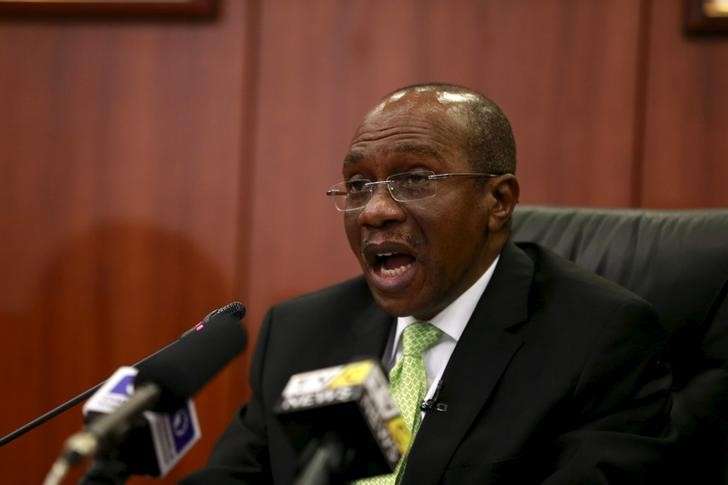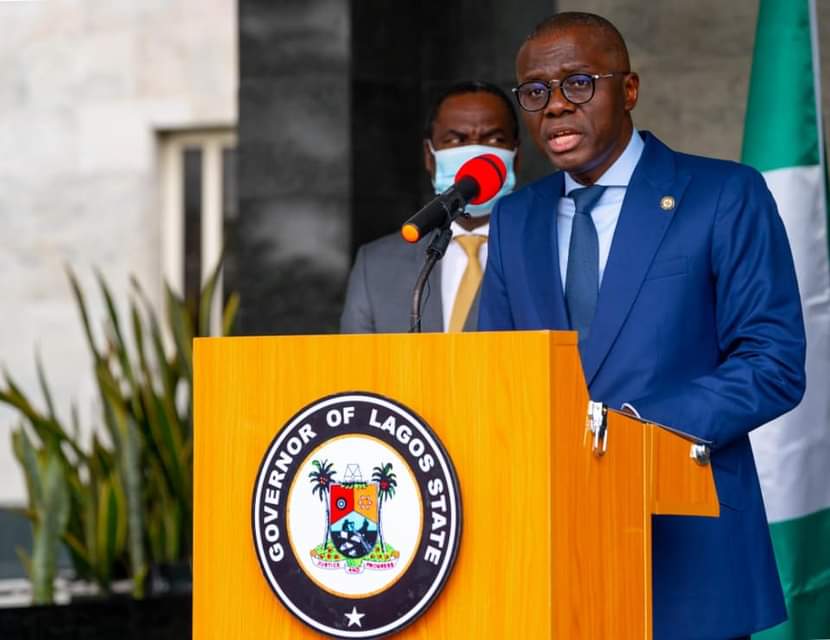Oil
3 Ukrainians, 2 Indians and a Russian kidnapped from oil vessel off Nigeria coast
ABUJA – Gunmen attacked a vessel off the coast of Nigeria’s oil-rich southern delta, kidnapping six foreigners in an area that has become increasingly dangerous for oil companies and shippers, a police official said Wednesday.
Three Ukrainians, two Indians and a Russian were taken from a vessel run by energy company Century Group 70 kilometres (43 miles) off Nigeria’s southern coast on Sunday, Bayelsa police spokesman Fidelis Odunna said. The kidnappers have demanded a 200 million naira ($1.27 million) ransom.
 Typically, foreign companies operating in Nigeria’s Niger Delta pay cash ransoms to free their employees after negotiating down kidnappers’ demands. Foreign hostages can fetch hundreds of thousands of dollars apiece.
Typically, foreign companies operating in Nigeria’s Niger Delta pay cash ransoms to free their employees after negotiating down kidnappers’ demands. Foreign hostages can fetch hundreds of thousands of dollars apiece.
Foreign companies have pumped oil out of the Niger Delta, a region of mangroves and swamps the size of Portugal, for more than 50 years. Despite the billions of dollars flowing into Nigeria’s government, many in the delta remain desperately poor, living in polluted waters without access to proper medical care, education or work.
The poor conditions sparked an uprising in 2006 by militants and opportunistic criminals who blew up oil pipelines and kidnapped foreign workers.
That violence ebbed in 2009 with a government-sponsored amnesty program that offered ex-fighters monthly payments and job training. However, few in the delta have seen the promised benefits and sporadic kidnappings and attacks continue.
Pirate attacks are on the rise in West Africa’s Gulf of Guinea, which follows the continent’s southward curve from Liberia to Gabon. Over the last year and a half, piracy there has escalated from low-level armed robberies to hijackings and cargo thefts. Last year, London-based Lloyd’s Market Association — an umbrella group of insurers — listed Nigeria, neighbouring Benin and nearby waters in the same risk category as Somalia, where two decades of war and anarchy have allowed piracy to flourish.
Experts say many of the pirates in the area come from Nigeria, where corrupt law enforcement allows criminality to thrive and there’s a bustling black market for stolen crude oil. Nigeria’s lawless waters and often violent oil region routinely see foreigners kidnapped for ransom. Increasingly, criminal gangs also have targeted middle- and upper-class Nigerians as well.
Sunday’s kidnapping is just the latest attack in the region. On Dec. 17, gunmen kidnapped five Indian sailors on the SP Brussels tanker as it sat about 40 miles (64 kilometres) off the coast of the Niger Delta. That came the same day gunmen abducted four South Koreans and a Nigerian working for Hyundai Heavy Industries Co. at a construction site in the Brass area of Bayelsa state. Those workers were later released, though the Indians are still believed to be held by the abductors.
Oil
NNPC Targets 60% Methane Emission Reduction By 2031
The Nigerian National Petroleum Company Limited (NNPC) has unveiled a bold strategy to reduce methane emissions in the oil and gas sector by 60% by 2031, with an ultimate goal of achieving net-zero emissions by 2060.
This announcement reinforces Nigeria’s leadership role under the Global Methane Pledge initiative and its commitment to tackling climate change.
The Group Chief Executive Officer of NNPC, Mele Kyari, disclosed these plans during a meeting on Thursday with Robert Leahman, the U.S. State Department’s Global Methane Program Manager, and a delegation from Deloitte.
READ MORE: Atiku Gloats Over AUN’s Achievements Ahead Of 20th Anniversary
The discussions, held at the NNPC Towers in Abuja, focused on collaborative efforts to reduce methane emissions through innovative and sustainable practices.
“Reducing methane emissions is not just an environmental necessity but also a strategic imperative for Nigeria’s energy transition. We are leveraging partnerships to adopt global best practices and innovative solutions,” Kyari stated.
Key among these efforts is a pilot project in the Niger Delta, aimed at establishing emissions baselines, mitigating methane leaks, and promoting sustainable operations across Nigeria’s energy sector.
The project, a partnership between NNPC, Deloitte, and the U.S. Bureau of Energy Resources, will utilize data-driven methodologies to pinpoint and address methane hotspots.
Robert Leahman commended Nigeria’s proactive stance, describing it as a benchmark for other nations on the continent.
“Nigeria’s leadership under the Global Methane Pledge sets a standard for the continent. These initiatives will not only help reduce emissions but also drive sustainable development in the energy sector,” he said.
Kyari highlighted the broader benefits of addressing methane emissions, noting its significance for both environmental protection and economic efficiency.
“This collaboration is a game-changer. By addressing methane leaks, we’re reducing waste, saving costs, and protecting the environment. It’s a win-win for our economy and the planet,” he added.
Oil
FG Introduces New Incentives To Revitalize Nigeria’s Oil & Gas Industry
In a strategic move to revitalize Nigeria’s oil and gas sector, the Federal Government has unveiled two key fiscal incentives aimed at attracting investment and enhancing energy security.
The announcement was made by Mr. Wale Edun, the Minister of Finance and Coordinating Minister of the Economy on Wednesday.
The first initiative, the Value Added Tax (VAT) Modification Order 2024, introduces critical exemptions for essential energy products and infrastructure, including Diesel, Feed Gas, Liquefied Petroleum Gas (LPG), Compressed Natural Gas (CNG), Electric Vehicles, Liquefied Natural Gas (LNG) infrastructure, and Clean Cooking Equipment.
Read Also: Atiku Calls For Rotational Presidency Across Nigeria’s Geopolitical Zones
These exemptions are designed to reduce living costs for Nigerians, promote energy security, and accelerate the transition to cleaner energy alternatives.
The second initiative, the Notice of Tax Incentives for Deep Offshore Oil & Gas Production, offers new tax relief options for deep offshore exploration projects.
This measure aims to position Nigeria’s deep offshore basin as a premier destination for international oil and gas investments, boosting the country’s appeal to foreign investors.
These reforms are part of a broader set of policy initiatives, known as Policy Directives 40-42, endorsed by President Bola Ahmed Tinubu.
The directives reflect the administration’s commitment to fostering sustainable development in the energy sector and enhancing Nigeria’s competitive edge in the global oil and gas market.
Business
Tinubu set to approve ExxonMobil-Seplat oil deal, expands CNG bus initiative

By Yemie Adeoye
NIGERIA’s President Bola Tinubu has announced that the protracted ExxonMobil-Seplat upstream oil divestment will be formally approved by the Minister of petroleum within a matter of days, just as he announced his government’s intention to expand the Compress natural Gas, CNG buses initiative.
The President who stated this during his Independence day nationwide broadcast stated that the move is in line with his administration’s commitment to free enterprise, free entry and free exit in investments which is the hallmark of his administration investment policy.
“Fellow compatriots, our administration is committed to free enterprise, free entry, and free exit in investments while maintaining the sanctity and efficacy of our regulatory processes. This principle guides the divestment transactions in our upstream petroleum sector, where we are committed to changing the fortune positively. As such, the ExxonMobil Seplat divestment will receive ministerial approval in a matter of days, having been concluded by the regulator, NUPRC, in line with the Petroleum Industry Act, PIA. This was done in the same manner as other qualified divestments approved in the sector.”
The President also seized the opportunity to plead with Nigerians to be patient with his administration’s reform policies. “As your President, I assure you that we are committed to finding sustainable solutions to alleviate the suffering of our citizens. Once again, I plead for your patience as the reforms we are implementing show positive signs, and we are beginning to see light at the end of the tunnel”.
“Our energy transition programme is on course. We are expanding the adoption of the Presidential Initiative on Compressed Natural Gas for mass transit with private sector players. The Federal Government is ready to assist the thirty-six States and FCT in acquiring CNG buses for cheaper public transportation.
Fellow Nigerians, while we are working to stabilise the economy and secure the country, we also seek to foster national unity and build social harmony and cohesion. Our economy can only thrive when there is peace”. he enthused.















